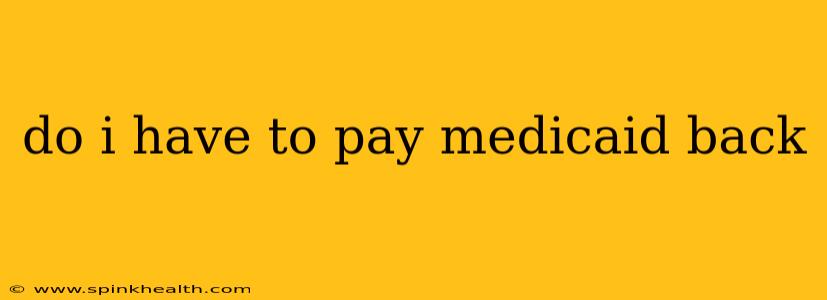Do I Have to Pay Medicaid Back? A Story of Unexpected Bills and Peace of Mind
The crisp white envelope felt heavy in my hand. Inside, a letter from the state detailing a Medicaid overpayment. My heart sank. I’d received Medicaid assistance during a difficult time, a period of unemployment and unexpected medical bills that seemed insurmountable. Now, they wanted their money back. The question hanging in the air, heavy with anxiety, was: Do I have to pay Medicaid back?
This isn't just my story; it's a question echoing in the minds of countless individuals who have relied on Medicaid for crucial healthcare. The answer, unfortunately, isn't a simple yes or no. It depends on several factors, and understanding these is key to avoiding unnecessary stress and financial burdens.
What Happens if You Receive an Overpayment Notice from Medicaid?
This was the exact situation I found myself in. The letter stated that due to a clerical error in my income reporting, I had received more Medicaid assistance than I was entitled to. Panic set in. How could I possibly afford to repay this?
This is where understanding the process becomes crucial. Medicaid agencies don't simply send out a bill and expect immediate payment. There's usually a process involved:
-
Review of the Notice: Carefully review the overpayment notice. Check the dates, amounts, and the reasons cited for the overpayment. Are you certain the calculations are accurate? If there's a discrepancy, contact the Medicaid agency immediately. This is crucial!
-
Dispute the Overpayment (If Necessary): You have the right to dispute the overpayment if you believe it's incorrect. Gather any relevant documentation, such as pay stubs, tax returns, or medical bills, to support your case.
-
Negotiating a Repayment Plan: If the overpayment is legitimate, the Medicaid agency may work with you to establish a manageable repayment plan. This plan might involve monthly installments tailored to your financial situation. Don't hesitate to ask!
-
Financial Hardship Considerations: If you're facing financial hardship, the Medicaid agency will likely take that into account. They might waive the repayment or significantly reduce the amount owed.
What Circumstances Might Lead to a Medicaid Overpayment?
Several factors can contribute to Medicaid overpayment situations. Understanding these can help prevent them in the future:
-
Changes in Income: A significant increase in income that wasn't reported promptly can lead to an overpayment. Medicaid requires regular updates on your income and household changes.
-
Changes in Household Size: If someone moves into or out of your household, it affects your eligibility. Failure to report these changes can result in an overpayment.
-
Clerical Errors: Mistakes happen. Both you and the Medicaid agency can make errors in reporting or processing information. This is why careful review of notices is so crucial.
-
Dual Enrollment: Being enrolled in other programs that offer similar benefits might lead to overpayment. Be transparent and inform your Medicaid agency of any other benefits you are receiving.
Can Medicaid Take Money Directly from My Bank Account or Wages?
This is a common concern. In most states, Medicaid cannot directly seize your funds without a court order. They'll typically work with you to establish a repayment plan, and it's highly unlikely they'd pursue legal action for relatively small overpayments. However, state regulations vary, so it's important to verify your state's specific policies.
What Happens if I Don't Pay Back Medicaid?
Failure to repay a Medicaid overpayment can have consequences, ranging from damage to your credit score to potential legal action. Again, the severity depends on the amount owed and your state's regulations. Open communication with the Medicaid agency is crucial in avoiding escalation.
My Experience and Resolution
In my case, after carefully reviewing the overpayment notice and providing documentation, I was able to negotiate a manageable repayment plan. The agency recognized my financial hardship and reduced the amount due, making repayment a realistic goal. While the experience was initially stressful, open communication and proactive steps saved me from unnecessary financial burdens.
Remember, navigating the complexities of Medicaid repayments doesn't have to be a daunting task. Proactive communication with your state's Medicaid agency is key to resolving any issues fairly and efficiently. Don’t hesitate to seek help if you need it—many organizations offer assistance to individuals navigating Medicaid overpayment situations.

